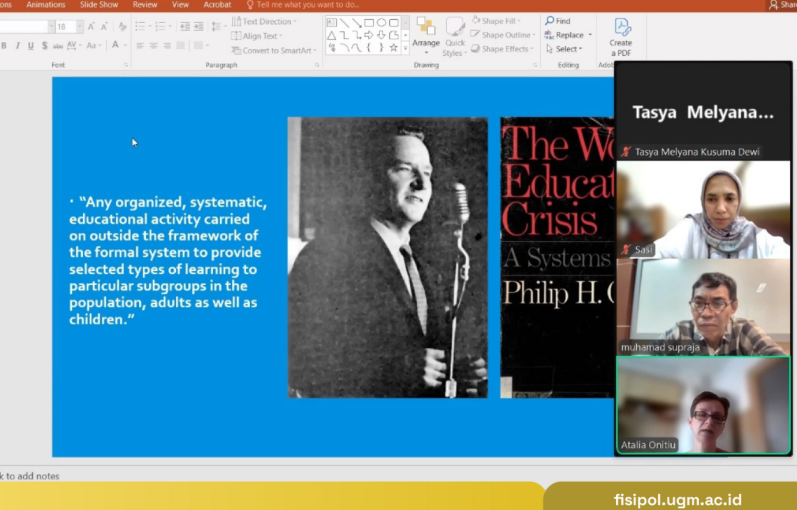
Dr. Atalia Oniliu, a lecturer from the West University of Timisoara explained that the efforts in recognizing non-formal education in Europe began in 2001. The people realized that the presence of non-formal education does not only function as a complement to formal education, but it can also help hone self competencies and character. “We see non-formal education as something that is important. It can help hone character, culture, and soft skills that you would not typically experience in formal education,” Atalia mentioned.
Through cooperation and teamwork between the European Commision and the European Education Council for Non-Formal Education, the International Standard Classification of Education (ISCE) was created. This regulation gives several classifications and requirements so that non-formal education could be recognized according to its categories. These steps can help improve awareness of the importance of non-formal education to Romanian citizens, as well as achieve recognition in career paths.
“We emphasize that non-formal education is a part of long-life learning and honing soft skills. With that, it should be ensured that while non-formal education does not hand out diplomas like formal education does, there are still levels and special recognition,” Atalia added. The Romanian government currently has two main objectives in ISCE. First is to provide materials that formal education does not provide. The second is to reach all levels of society and achieve social inclusivity.
Non-formal education in Romania generally encompasses various sectors, starting from language learning, bootcamp training, study guidance, cultural study, and many more. The government ensures that non-formal education can reach out to people of all ages. The learning model is much more flexible and accommodative to the learners. “Basically, non-formal education is provided as a compensation for the limitations of formal education, so it is needed to know that the learning process is not only limited to the formal education sector,” Atalia described.
Almost similar to Romania, Indonesia also has various schemes of non-formal education known to people. According to Law No.20 of 2003, non-formal education is meant as a pathway to education outside of formal education that is structurally done tiered. In a research by Dr. Muhammad Supraja, a lecturer from UGM’s Department of Sociology, titled “Fighting Discrimination Against Alternative Community-Based Education”, argued the existence of non-formal education has helped in providing students from low accessibility areas with education.
“People in the rural, sub-urban areas might find it very difficult to access state schools. Other than geography, the price to pay for quality education is also not cheap,” Supraja explained. Prices for accommodation, like school uniform, school books, as well as field trips are oftentimes constraints in accessing formal education. But, the awareness of education in communities have sparked non-formal education services, in line with the experience of the establishment of Sanggar Anak Alam (SALAM) at Yogyakarta dan Qoryah Thaybah at Salatiga.
“In reality, families from middle to lower class felt that the presence of community-based non-formal education as something that is very helpful for them. Sadly, this sector does not get the recognition that it deserves from the government,” Supraja added. In the case of Indonesia, this sector needs special attention in order to promote knowledge in everyday life. Education cannot just be seen as something formal, but it needs support from non-formal and informal education so as to achieve long-life education. The guest lecture from UGM’s Department of Sociology was organized by Fisipol UGM as a form of commitment towards realizing SDG 4, that is quality education.
